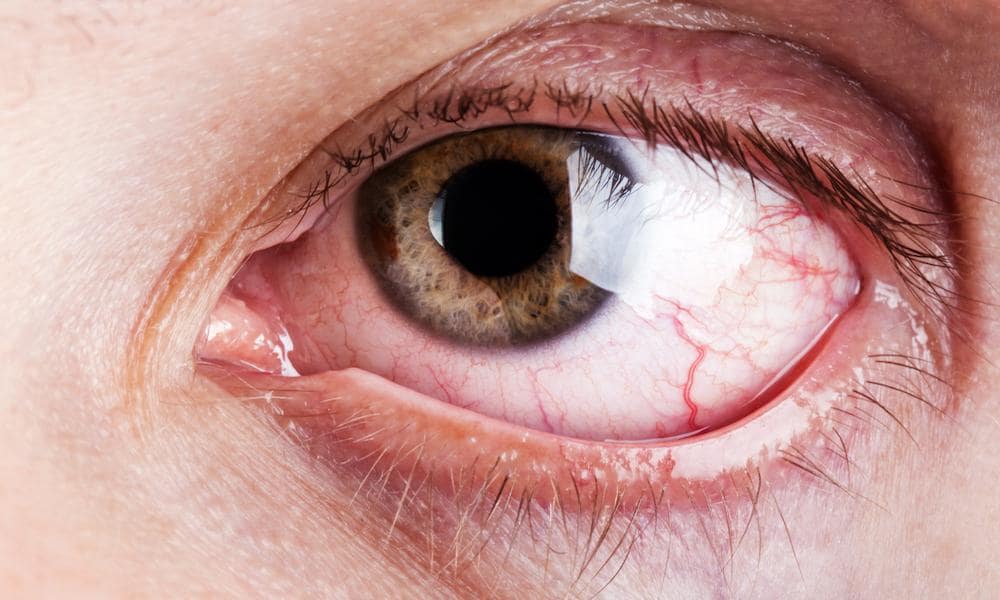
09 Mar Five Tips for Preventing Dry Eyes
Whether from the weather, allergies, or changes in hormones, at some point you may experience the stinging, burning, and redness caused by dry eyes. In addition to the discomfort, when left untreated, dry eyes may lead to eye damage or infection. A few lifestyle changes may help prevent dry eyes.
1. Change your environment
Making a few tweaks to your environment can make a significant difference in helping prevent dry eyes. It may not come as much of a surprise that dry weather affects the moisture in your eyes. While you may not have much control over the weather outside, using a humidifier at home or the office adds moisture to the air to reduce dryness.
Your eyes may also get irritated from dirt and allergens floating in the air. Change the filters in the heating and air conditioning systems at home every four months to keep the circulating air free of eye irritants.
Reduce eye moisture evaporation by redirecting the heat and air conditioning fans in your car away from your face. When working at your computer, position the screen below your eyes so they have more protection from your lids. Screens placed above eye level causes eyes to open wider, increasing eye exposure and moisture evaporation.
2.Protect your eyes
Sunglasses not only protect your eyes from bright light, but also partially block the wind and dust. For extra protection against dry eyes, wear wrap-around sunglasses to protect the sides of your eyes too.
Smoking is a risk factor for the development of dry eyes. So if you’re a smoker, let us help you devise a plan to quit. If it’s secondhand smoke, do your best to limit exposure to protect your eyes and lungs.
3. Give your eyes a break
We recommend you give your eyes a break to reduce dryness. That means looking away from your computer or TV and closing your eyes for a minute or two for a short rest. You can also look away from your screen and blink several times to remoisten the eyes.
At home, lie down and relax for 10 minutes with a warm, moist washcloth over your eyes to improve eye health.
4. Add Omega-3 and vitamin A-rich foods to your diet
What you eat affects eye health. Red eyes aren’t only a symptom of dry eyes, but may indicate underlying inflammation that makes dryness worse. Omega-3 fatty acids may help reduce inflammation and help your eyes feel better. Salmon, walnuts, and flax seeds are good sources of this essential fat.
Vitamin A is a critical component of rhodopsin, which is a protein in the eye that absorbs light. Getting an adequate amount of vitamin A in your diet may also help improve eye health and reduce dryness. Good sources include salmon, carrots, sweet potatoes, cantaloupe, and fortified cereals.
5. Try artificial tears
If your eyes are chronically dry and nothing seems to help, or you’re in an environment you simply can’t change, you may benefit from eye drops that help keep your eyes moist. If over-the-counter drops don’t help, prescription eye drops may do the trick, and we can prescribe them for you.
If you’re suffering from dry eyes and need guidance on how to help them feel better, call us or use the online scheduler to book your consultation.


Sorry, the comment form is closed at this time.